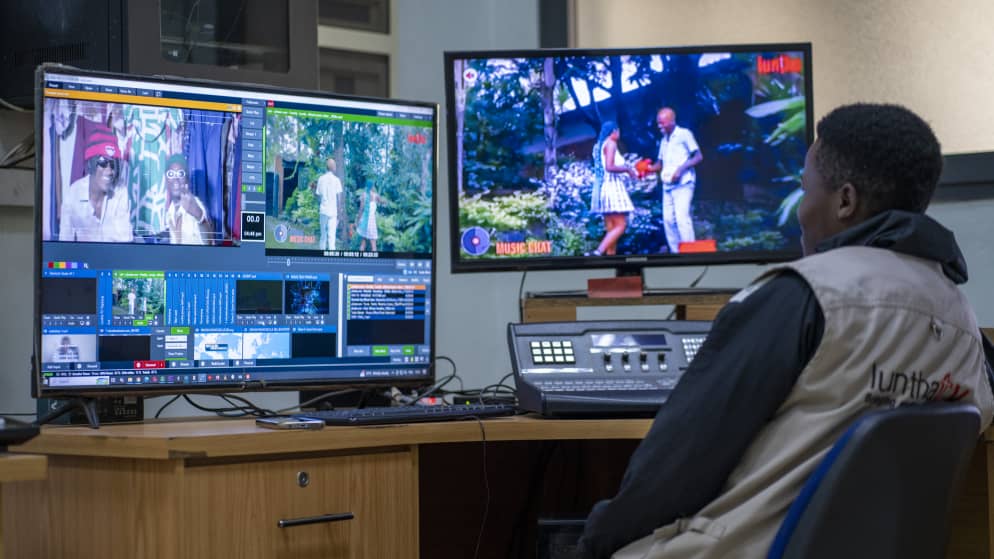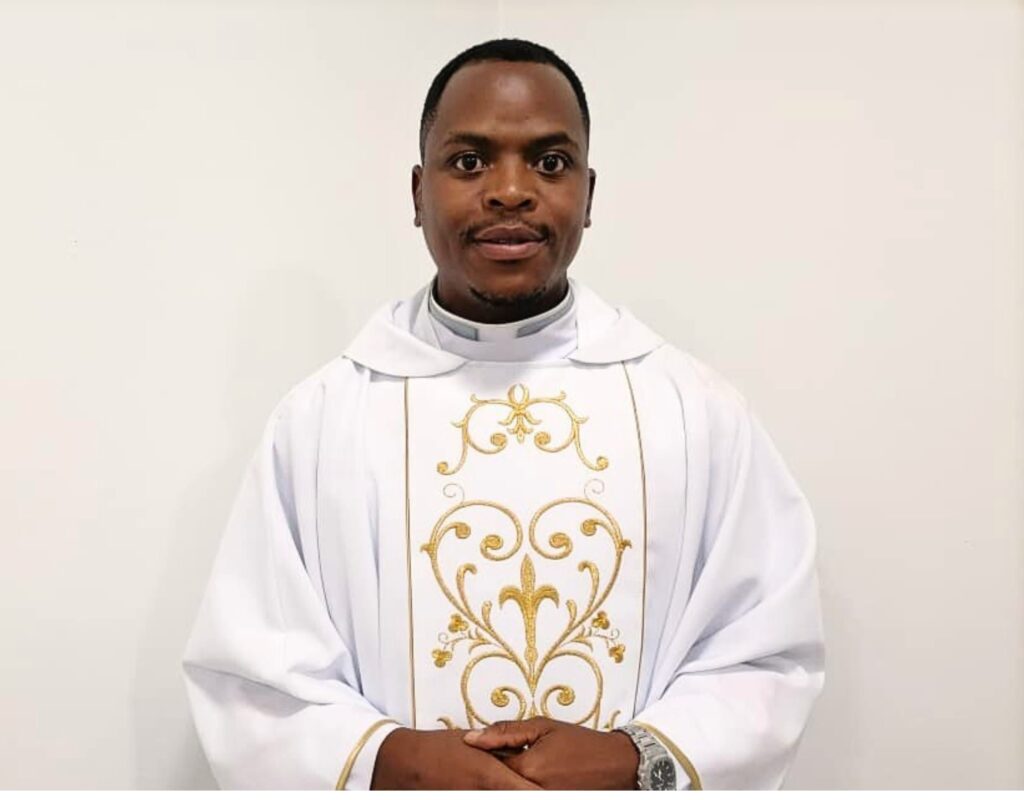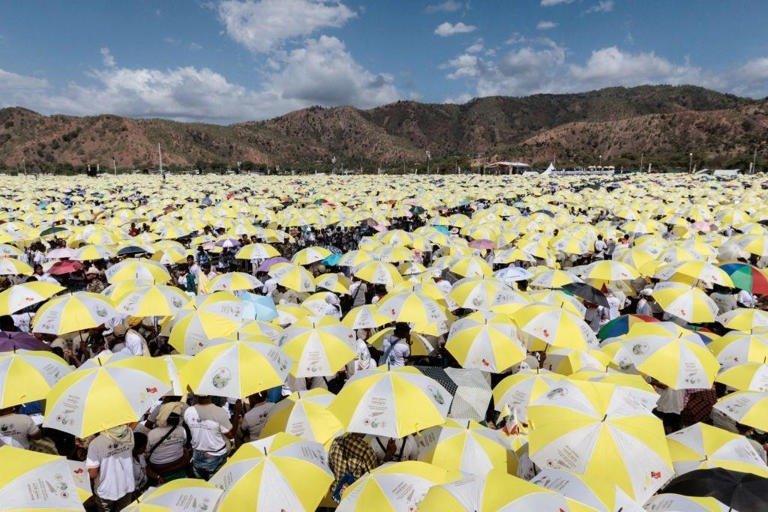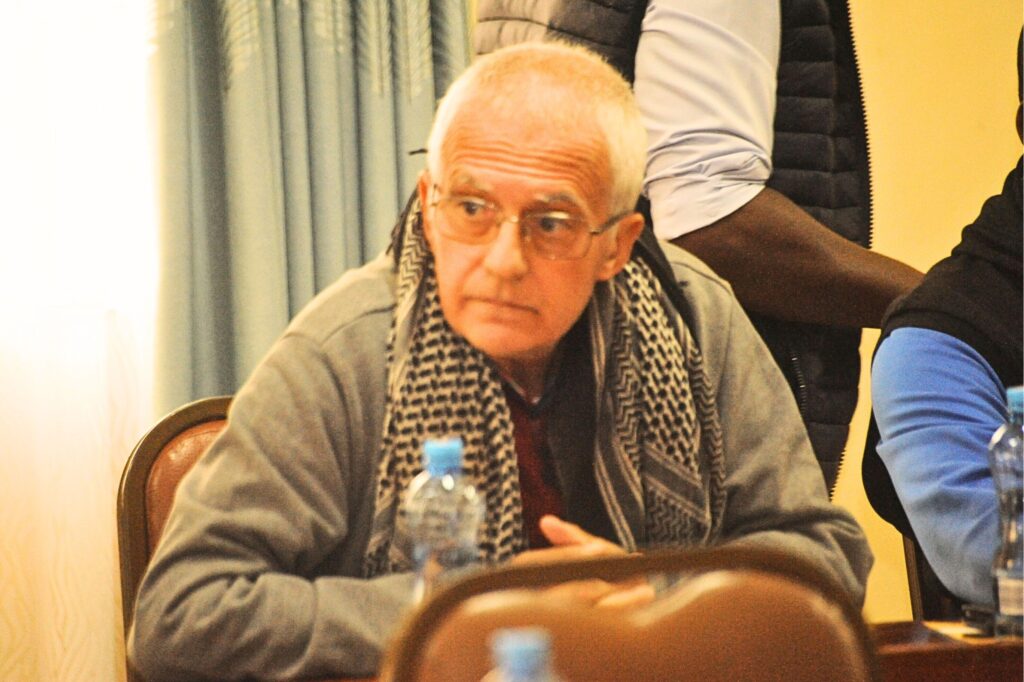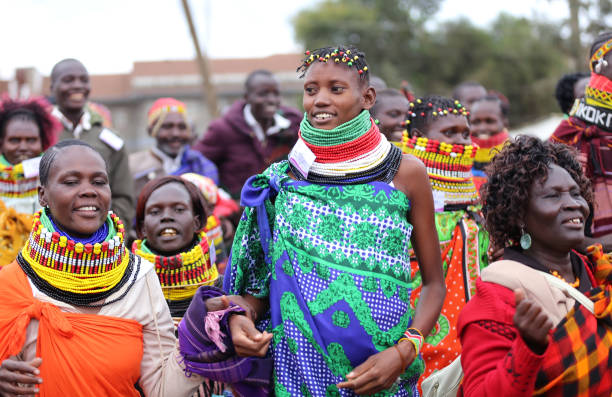A Parish helping the youth to encounter Christ
At 50, St Kizito parish can be proud of very many achievements. The Comboni missionaries-run parish among other things has uplifted the lives of the youth. Importantly, in line with the mission of any parish, it has helped young people to encounter Christ. One of them, now an adult narrates the heartwarming story of St Kizito Parish situated in Lusaka Zambia. He also suggests valuable lessons for the church to embrace if she is to win today’s youth.
By Jairous Joseph Miti [BSW, MIS]
Lecturer: Social Work, University of Zambia
Southern Africa Representative: Association of Schools of Social Work
My first encounter with a social institution outside the family was with the church – through St. Kizito Catholic Parish in Lusaka’s George Compound. The Parish was established in 1971 by the Jesuits in response to the growing population of Catholic Christians in that area who, prior to the establishment of the Parish had to cover a long distance to attend Mass and other religious festivals at St. Mary Mother of the Redeemer Parish. In 1989, the Parish was handed over to Comboni Missionaries, with Fr. Carlo Castelli as Parish Priest.
In 2021, the Parish was scheduled to celebrate its Golden Jubilee. However, due to the ravaging effects and uncertainties brought about by the COVID-19 pandemic, the Golden Jubilee celebrations have taken place this year (2022), reaching their climax on 2nd October 2022 with celebration of the Eucharist led by Most Rev. Dr. Alick Banda, Archbishop of Lusaka.
 St. Kizito Parish is located in and ministers to a largely low income community with a history of social, economic and health problems. Despite these anomalies in the community, St. Kizito Parish has played its prophetic role – calling all to the Kingdom of God as well as providing social and spiritual support to members of the community – with youths being helped to encounter Christ to be his missionaries.
St. Kizito Parish is located in and ministers to a largely low income community with a history of social, economic and health problems. Despite these anomalies in the community, St. Kizito Parish has played its prophetic role – calling all to the Kingdom of God as well as providing social and spiritual support to members of the community – with youths being helped to encounter Christ to be his missionaries.
In helping youths encounter Christ and be missionaries, the Parish uses strategies that speak to youths and considers youth participation as an essential part of Parish life through the following:
Catechetical lessons– Catechetical lessons form an integral part of pastoral life at St. Kizito Parish. From the ages of 6 years, children begin their catechetical lessons in their Small Christian Communities, where a lay volunteer teacher (Catechist) shares with them the word of God and other topics of the Church. Here, children learn prayers such as the ‘Our Father and the Hail Mary’ and about Jesus and his family/parents as well as the existence of God.’ It is in this setting that children begin to form their identity as Catholics. Well, I did not undergo such myself as we went directly to start lessons at the Parish. Here, I encountered lay volunteer teachers who, with dedication shared their faith with us and provided lessons on various aspects of Catholic doctrine as we were prepared for first communion and baptism for those who were not baptized as infants. During these catechism lessons, young people are also encouraged to attend Mass regularly and to join the Altar Boys and Young Stellas (Liturgical dancers) once they have received their first communion. Thus, I joined the altar servers (Altar Boys).
Altar Boys– Being an altar boy is a humbling yet prestigious experience. At the altar, we serve God, are near priests and serve the community. The opportunity to be at the Altar, dressed in robes for purposes of serving at Mass, gives young people an identity and yearning for the vocation to priesthood. We as altar boys felt like ‘small priests’ and sometimes went home practicing what priests do during Mass. Thus, I developed this desire to serve, and even so as a priest. Most boys who serve at Mass develop this desire to become priests. Only later in life do we learn and accept that priesthood is a call from God.
Altar Boys meet every Saturday, to share the Word of God, prepare for Sunday and weekday Masses. Being an altar boy at St. Kizito brought with it the opportunity to learn some school subjects from our seniors- those who had problems in mathematics, sciences and other subjects were helped by fellow altar boys who understood these subjects better. Additionally, priests that have served the parish have always emphasized the importance of education- at some point our parish priest used to give presents to youths who showed good performance in their end of term tests at school.
So, we literally began to compete at school so that we could get a present from the priest at church. Sometimes, our meetings gave more focus to education and hygiene. Through these meetings and engagements, leaders were formed from among us. The tasks to write minutes for meetings, list of Mass servers, and guiding others with manual work slowly shaped our leadership skills.
 Another contribution of the church to the life of the youth is the appreciation of culture. The altar boys also formed a cultural group, called Chimwemwe (Happiness) Boys that also entertained the parish during feasts. Through this cultural group, members gained exposure and knowledge about different cultural dances. The group became famous in the city, outperforming other cultural groups such that it could now perform on important national events and exhibitions. Thus, the Parish through these activities has helped form leaders and grow young people into responsible adults, appreciating culture, participating in evangelization and actively performing their civic duties.
Another contribution of the church to the life of the youth is the appreciation of culture. The altar boys also formed a cultural group, called Chimwemwe (Happiness) Boys that also entertained the parish during feasts. Through this cultural group, members gained exposure and knowledge about different cultural dances. The group became famous in the city, outperforming other cultural groups such that it could now perform on important national events and exhibitions. Thus, the Parish through these activities has helped form leaders and grow young people into responsible adults, appreciating culture, participating in evangelization and actively performing their civic duties.
Young Stellas (Liturgical dancers)- The Parish has an active group of young girls, who engage in liturgical dance. Like with the altar boys, Young Stellas meet regularly and guided by their matron, learn Scripture while undertaking some tasks assigned to them by the Church.
Small Christian Communities and youth lay movements- St. Kizito Parish has 22 Small Christian communities (SCC), with an average of 150 people. To enhance youth participation and also ensure that youths share their own stories, the Parish established youth small Christian Communities in the 1990s. This meant that within a small Christian community, there are two groups- seniors and youths. Youths have their own leaders who, working with the patron and matron- also senior executive of the SCC, lead activities that support growth and development of the youth.
Thus, various youth SCC form a youth pastoral council which is led by the Youth executive at the Parish. Through youth SCC, youth are leaders. Over the years, the Parish has emphasized this important role of the youth which has also seen active participation of youth in overall life of the Parish. Youths have also been given a platform in the respective lay organisations/movements. For example, some of the existing youth lay groups at the Parish include Junior Franciscans (JUFRA), Catholic Action, Legion of Mary, Xaverians, St. Joseph, Catholic Youth Network, among others.
Solidarity among the youth
The groups in collaboration with the Parish Priest organize workshops, retreats and motivational seminars to help youths in the process of spiritual and social development. Through these groups and SCC, youths are actively listening to the word of God, and responding in the ways they can to the call to participate in the mission of God and of the Church. For example, youths organize visits to those who are sick in the community, comfort those who mourn, and play a role in burying the dead. About two months ago, the Youth Choir led and played a significant role during the funeral ceremony including burial of one of their members- youths made material contributions of money to support with the costs that come with organising a funeral.
 Youths also help each other when one is sick- they contribute towards purchase of medicines/drugs prescribed at hospital and support family members in ways they can. They use their energy and enthusiasm for the benefits of others. Like Mother Mary (Lk 1.39), youths arise and move with haste when called upon to serve. This act of charity is an act of missionary character, responding to the needs of others. Through such acts, youth make the presence of God felt and experienced by those being served.
Youths also help each other when one is sick- they contribute towards purchase of medicines/drugs prescribed at hospital and support family members in ways they can. They use their energy and enthusiasm for the benefits of others. Like Mother Mary (Lk 1.39), youths arise and move with haste when called upon to serve. This act of charity is an act of missionary character, responding to the needs of others. Through such acts, youth make the presence of God felt and experienced by those being served.
While youths are committed to the call by the Church to be Christ-like and participate in the mission, they encounter challenges. These include unemployment and lack of access to opportunities that can improve their lives, marriages outside the church, models fronted to them by the media, emphasis on material gain and alcohol abuse. Even with these problems, youths are not alone. The Parish as a community continues to make efforts to support the growth and development of the youth.
The fruits of the parish
Around 1990, the Church opened a library. At the time this was the second library in George Compound and was accessed by both Catholics and non-catholics. It has for many years been the only place with a fully functional library that together with the entire church premises, provided an environment as well as study materials for the youth of school going age in the area. Some of the boys and girls (now men and women) who used these facilities are serving in various state and non-state institutions providing services in health; education; banking and finance; media and communications; defense and security; missionary work as priests and religious; construction and mining, among others. Most of these people have since relocated to other areas/districts and consequently parishes.
Sociologically, a good number of them have experienced upward mobility. From the missionary point of reference, some of the youths from the parish that are now serving in the vine yard of the Lord as priests and religious include Fr. Andrew Bwalya, Fr. Collins Mweshi, Fr. Noah Lung, Sr. Matilda Mubanga, Sr. Anastasia Mulauzi, Sr. Grace Fundafunda and Sr. Eupharasia Mbewe. St. Kizito is thus, a missionary parish through its work of evagelisation in the local community and presence of its sons and daughters in the mission. From this point of view, the Church has a challenge of living up to its missionary character by supporting the work of those in the frontiers of the mission.
The church has also fostered spiritual growth for the youth thereby leading to enhanced participation in the liturgy and the life of the church as a whole. Further, youth who marry outside the church or have children out of wedlock are not left alone. The Parish embraces them, allowing them to participate in youth meetings and activities while encouraging them to undergo the process of reconciliation following the required procedure. A sense of community and belonging is fostered by such an approach as youth who come into such situations are neither judged nor rejected.
Lessons for the Church
At 50 years, St. Kizito Parish has reached the age where its potential to grow and develop further is manifest. Its youthful population is undeniable and shows that the youth are integral members of the church that need nurturing and support for them to continue making relevant contributions to the pastoral life of the Parish. Contributions of the youth are already visible in their roles such as through committees at the parish- liturgy, funeral, Jubilee, Finance, Sports and social as well as leadership in their respective SCC and lay groups. There are however, relevant lessons for St. Kizito and the church in general to continuously help the youth meet Christ. These are:
- Non-Judgmental Attitude- Youths should not be judged. There must be deliberate efforts to avoid blaming youths who may have some social problems including alcohol abuse. This is because youths face various sources of influence in their journey. What is important is to understand the nature of the problem and their needs so that they are helped accordingly.
- Acceptance- Parishes and those with responsibility over the youth should accept youth as they are- with their weaknesses and strengths. However, acceptance does not imply approval. Instead, it is about acknowledging the dignity of youths and creates a base through which they can be helped to meet Christ through sharing, love and smiles.
- Self-Determination- As individuals and as a collective, the youth have the ability to determine what they want. The role of youth ministers and leaders should be to facilitate the realization of aspirations of the youth- without contradicting scripture and church doctrine.
- Bottom-up approach- Planning of youth activities should always involve youths themselves.
- Embrace media and technology- With advancements in technology, the Church should find ways of making youths active through media. Concretely, formation of media and ICT committees can help attract and reach out to youths.
- Comprehensive approach to programming- Parishes should be alive to the fact that youths, like any human being also have social and material needs. Thus, all programmes and efforts should be focused on addressing all needs of the youth. Additionally, the church should take an active role in linking youths to corridors of opportunity for their economic and spiritual emancipation.



